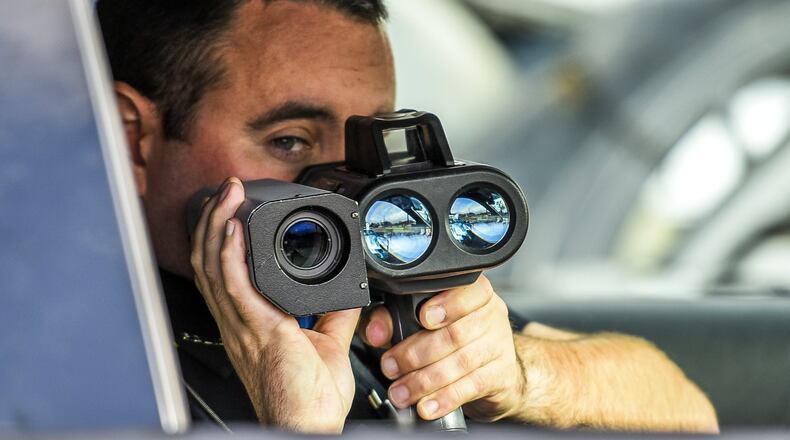New Miami was sued by a large group of people who were fined by the village’s speed camera program that was later ruled unconstitutional. A judge recently ruled the speeders were owed $3.4 million, and New Miami has continued to appeal.
In her response to questions for this news organization’s interactive voters guide before the election, she said the case needs to end.
“I believe the village should not continue to spend money fighting the speed camera lawsuits,” she wrote.
RELATED: New Miami: Village only owes speeders $10K, not $3.4M
Henley did not answer the question about speed cameras.
Chandler told the Journal-News she can’t comment further until she talks to Village Solicitor Dennis Adams and the attorneys handling the case. But she hopes she can convince the council to drop the fight that has cost village taxpayers more than $360,000 in attorneys’ fees once she takes office in January. Chandler will not have a vote on the council.
Megan Horn, who was elected to the council last week, said she wants the lawsuit by about 33,000 speeders to end also.
“At this moment I truly feel we are just wasting money and we are going to be spending much more money than the cameras brought in,” Horn said. “I feel it’s senseless to keep fighting it.”
New Miami is waiting to hear if Butler County Common Pleas Court Judge Greg Howard will issue a temporary restraining order and permanent injunction, banning state laws that have shuttered the village’s speed camera program. New Miami transitioned to handheld speed cameras after the program that included positioned cameras was ruled unconstitutional.
“I personally don’t like the cameras. The council voted to use them but I don’t see the benefit for the purposes of safety,” Chandler said. “If that is their intended purpose, I don’t see how it makes anything any safer, other than a warning to people that there’s traffic cameras ahead, slow down, but speed limit signs do the same thing.”
When the new state transportation bill passed, it reduced the amount of state financial aid local jurisdictions receive by the amount they collect annually in speed camera ticket revenue. It also mandated the courts handle speed camera citations as civil proceedings that include court fees and costs.
During a September hearing before Howard, Adams said if the law remains in place, the village will have to lay off its entire police department and cut Chief Ross Gilbert back to part-time.
During the hearing, New Miami Fiscal Officer Belinda Ricketts said it would cost the village an estimated $612,000 to cover court costs, and tickets only generate about $222,000.
Horn said she will need to see numbers before she makes up her mind about the speed camera program going forward. She said she supports keeping the village’s own police department.
“Once we get in there to see what’s really going on, there’s only so much that’s public knowledge, to see what the numbers really are, (we) won’t be able to know a final decision for sure,” she said.
MORE: New Miami: Ohio laws on speed cameras could cost us our police department
Meanwhile, in the lawsuit filed by the speeders, their attorneys have filed a response to New Miami’s appeal and a cross appeal with the 12th District Court of Appeals. They noted the village keeps relying on other court decisions finding the camera programs constitutional, but said “this ordinance is somewhat unique in the speed camera case law.” The reply brief noted other ordinances allow speeders to subpoena witnesses and evidence to bolster their case to have the tickets tossed. New Miami’s law doesn’t give speeders “subpoena power.”
The speeders are also challenging Butler County Common Pleas Judge Michael Oster’s ruling the village has 10 years to pay the $3 million and his interest calculation.
The final judgment is $137,170 shy of what the speeders’ attorneys say the interest amount should be. Josh Engel, one of the speeders’ attorneys, estimated interest at $560,823. He said it should have started accruing when the first ticket was paid. Oster set the interest amount at $423,653, the interest clock started ticking the day of his final judgment.
About the Author
